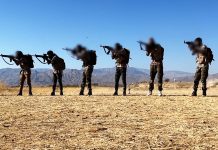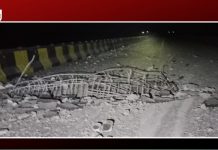On the night of November 15, in the Shah Mardan area of Kalat, the Baloch Liberation Army (BLA), which is fighting for Balochistan’s independence, attacked the central Frontier Corps camp, seized its outposts, and captured Pakistani military weapons. According to the Pakistani military spokesperson, eight personnel, including non-commissioned officers, were killed, and 17 others were injured in the attack. The BLA, however, claims to have killed 29 soldiers.
This attack is part of a series of assaults across Balochistan targeting military camps, major highways, and strategic installations by the Baloch pro-independence armed organizations’ coalition, the Baloch Raaji Ajoi Sangar (BRAS). These attacks have been ongoing since November 13, observed as ‘Baloch Martyrs’ Day’. On this day, BRAS imposed blockades on six major highways in Balochistan and carried out numerous attacks on Pakistan armed forces, military installations, gas pipelines, vehicles transporting minerals, intelligence personnel, and ‘death squads’. They also seized weapons from the Levies and killed several Pakistani personnel, including Major Muhammad Haseeb.
Following the attack on Quetta Railway Station, internet services have been shut down across most of Balochistan. Discussions about a new military operation in the region are underway. However, despite over two decades of failure to suppress Balochistan’s ongoing independence movement through force, talk of military operations reflects a lack of understanding of the ground realities in Balochistan.
Past military operations in Balochistan have been unsuccessful, and future operations are unlikely to yield different results. Such operations will only lead to an increase in incidents of enforced disappearances and extrajudicial killings. However, they will not succeed in ending the Baloch insurgency.






























